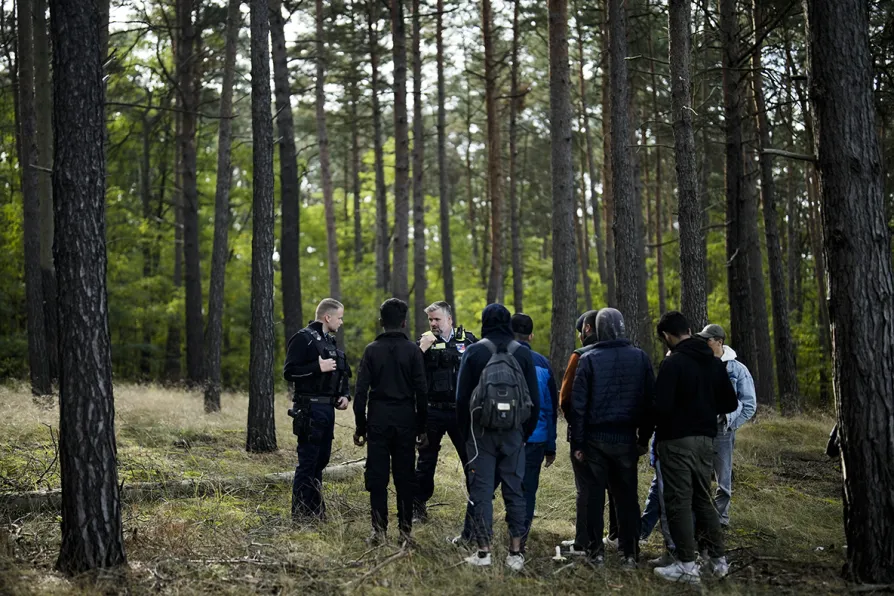EU migration reforms slammed by campaigners for weakening asylum seekers rights

 A police officer speaks into his radio after he and a colleague find people who have crossed the border from Poland into Germany in a forest near Forst, south east of Berlin, Germany, on October 11, 2023
A police officer speaks into his radio after he and a colleague find people who have crossed the border from Poland into Germany in a forest near Forst, south east of Berlin, Germany, on October 11, 2023
CHANGES to European Union immigration rules will weaken the rights of asylum-seekers and encourage more morally dubious deals with countries they are fleeing, campaigners have warned.
Following overnight talks, MEPs agreed on the “core political elements” of the Pact on Asylum and Migrants, which will overhaul the rules on migration.
European Parliament president Roberta Metsola called it a “truly historic day,” adding: “Let’s not underestimate the risk if we had not reached such a deal.
Similar stories

Campaigns hit out as Cooper tub thumps on migrant family life with public threat to human rights act













